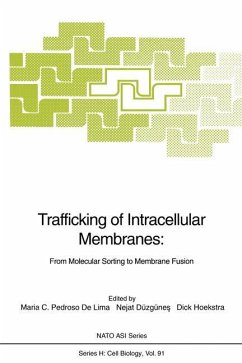
Stress Proteins
Induction and Function
Herausgegeben von Schlesinger, Milton J.; Santoro, M. Gabriella; Garaci, Enrico

PAYBACK Punkte
38 °P sammeln!
All living organisms are exposed to rapidly changing environmental conditions which may lead to external stress. How organisms cope with stress - especially on the molecular level - is explained in Stress Proteins. Cells react to external stress - where the temperature-induced reaction known as "heat shock response" is the best studied example of stress - by activating special genes and subsequently synthesizing stress proteins. Surprisingly, this stress response is not only similar for all types of stress but even the involved stress proteins are virtually identical in all organisms from prok...
All living organisms are exposed to rapidly changing environmental conditions which may lead to external stress. How organisms cope with stress - especially on the molecular level - is explained in Stress Proteins. Cells react to external stress - where the temperature-induced reaction known as "heat shock response" is the best studied example of stress - by activating special genes and subsequently synthesizing stress proteins. Surprisingly, this stress response is not only similar for all types of stress but even the involved stress proteins are virtually identical in all organisms from prokaryotic to eukaryotic cells, from bacteria to humans. This universality shows that stress proteins are vital for surviving and indicates that these proteins play an essential role in normal cell functions, in cell growth and metabolism. This explains the great interest in stress response research.












